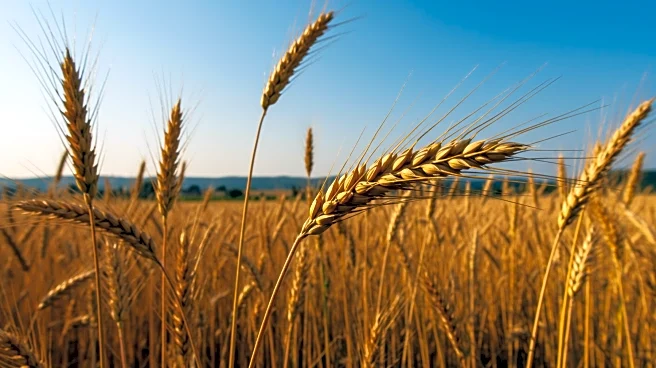What's Happening?
Syria has announced an international tender to purchase 200,000 metric tonnes of soft milling wheat to address a domestic shortage caused by the worst drought in 36 years. The Ministry of Economy and Industry of Syria is seeking to cover the deficit in wheat production, which has decreased by 40%. The tender requires shipment within 60 days of award, with partially shipped goods allowed but not less than 100,000 tonnes. This move follows Syria's previous purchase of 100,000 tons of grain in March, marking a significant procurement effort since the change in power last year.
Why It's Important?
The severe drought in Syria has led to a critical food shortage, highlighting the vulnerability of the country's agricultural sector and the broader implications for food security. The tender reflects Syria's urgent need to secure wheat supplies to prevent a potential food crisis. The situation may impact global wheat markets, as Syria's demand could influence prices and availability. Additionally, the economic strain on Syria due to the drought and the need for large-scale purchases may affect its ability to engage in international trade and economic recovery.
What's Next?
The deadline for submitting price offers for the wheat tender is September 15. Traders and suppliers will need to navigate logistical challenges to meet the shipment requirements within the specified timeframe. The Syrian government may face difficulties in financing the purchase due to its cash-strapped status, potentially requiring international assistance or favorable trade terms. The outcome of the tender will be crucial in determining Syria's ability to stabilize its food supply and mitigate the effects of the drought.
Beyond the Headlines
The drought in Syria raises broader concerns about climate change and its impact on agriculture and food security in the region. The situation may prompt international discussions on sustainable agricultural practices and the need for climate resilience strategies. The tender also highlights the geopolitical dynamics in the region, as Syria's procurement efforts may involve negotiations with various international partners and suppliers.











